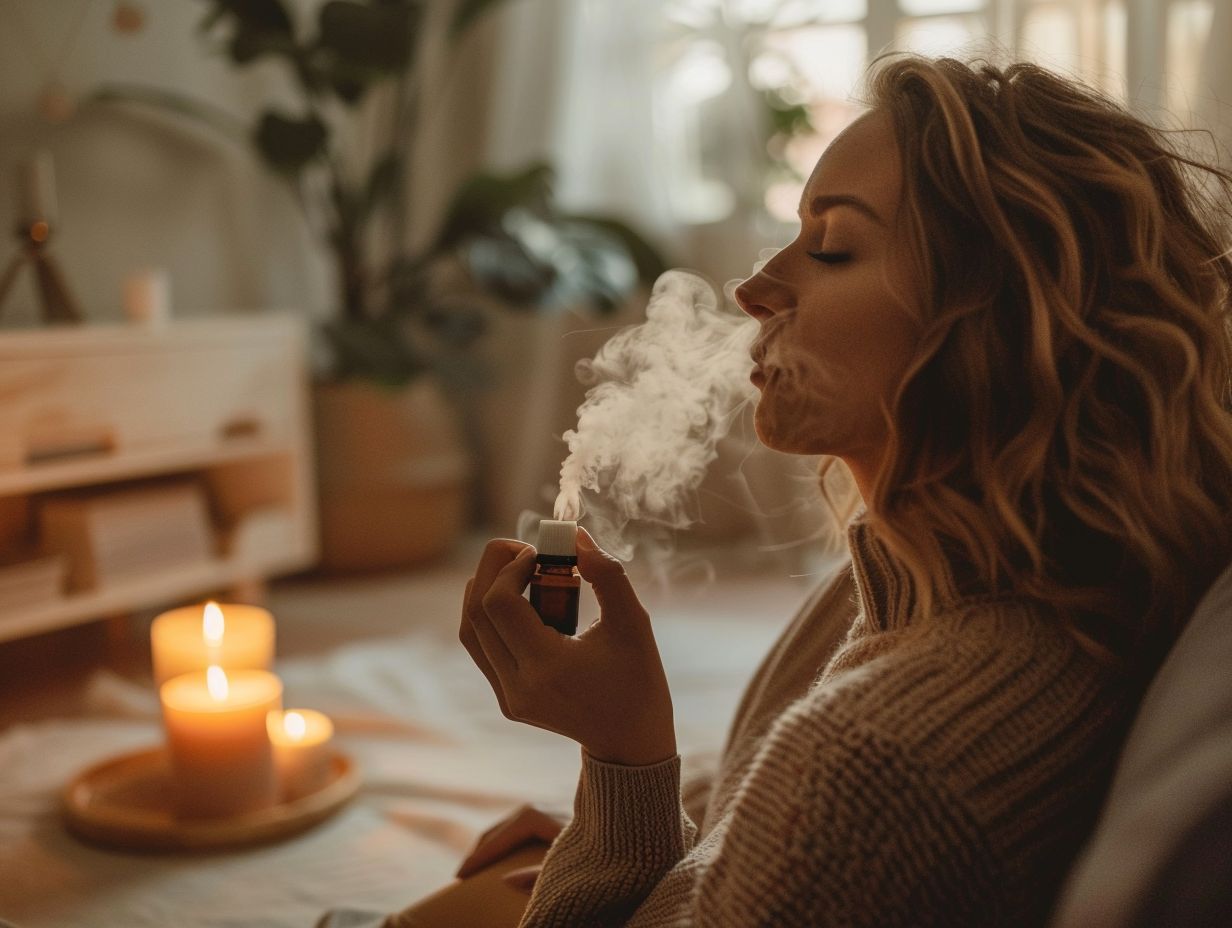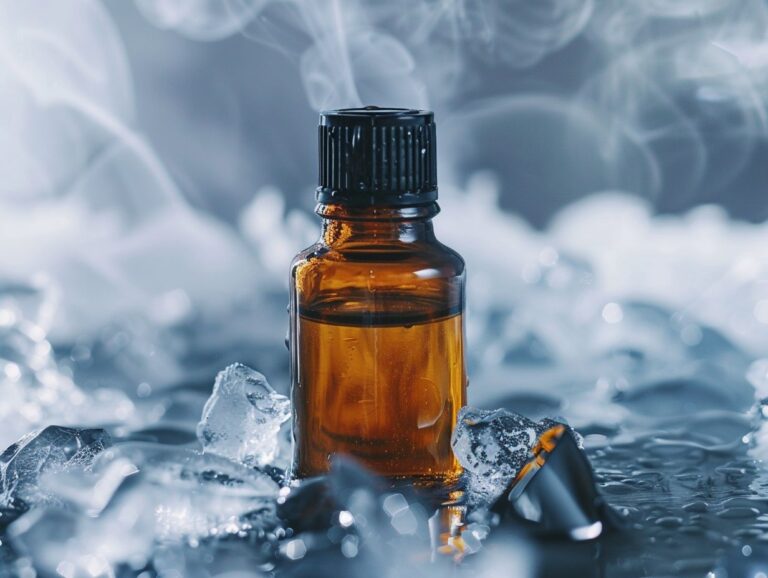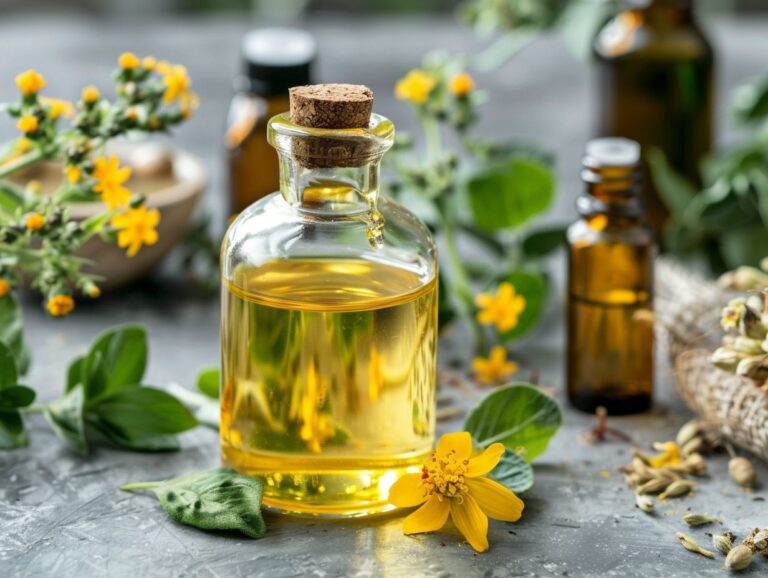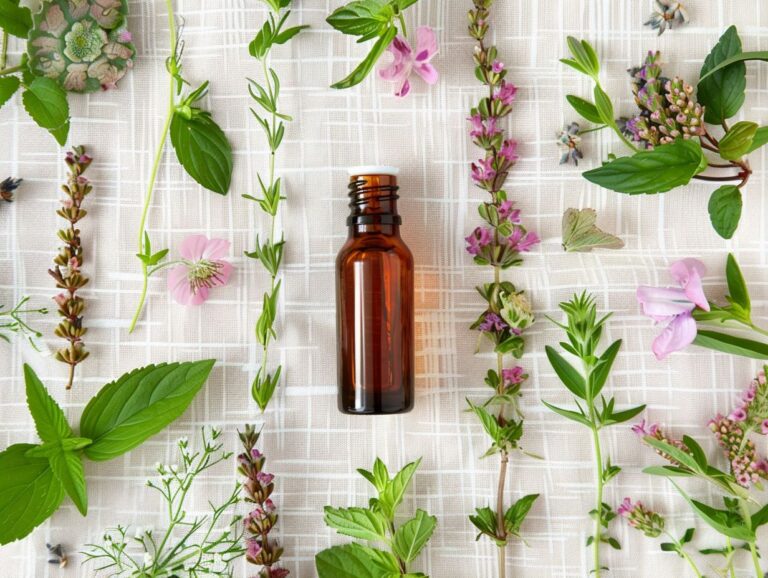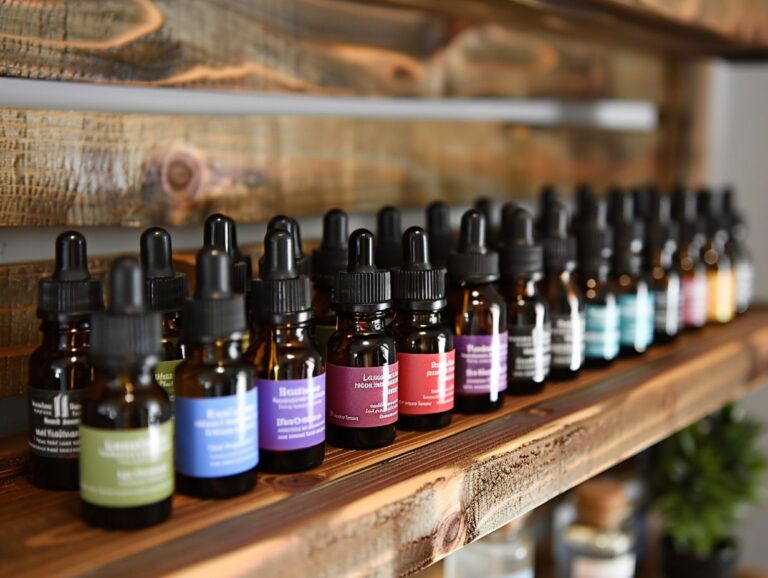Does Diffusing Essential Oils Leave a Residue
Essential oils have gained popularity for their numerous benefits, from aromatherapy to mood enhancement.
Have you ever wondered if diffusing essential oils can leave a residue behind?
In this article, we will explore the concept of residue and whether diffusing essential oils can leave residue on surfaces or in the air.
We will also provide tips on how to prevent residue when diffusing essential oils and discuss alternative methods for using these powerful oils.
Key Takeaways:
What Are Essential Oils?
Essential oils are natural plant extracts that capture the plant’s scent and flavor, commonly used in aromatherapy, skincare, and cleaning products. These oils are extracted through distillation or cold pressing, providing a concentrated form of the plant’s essence.
The rich history of essential oils dates back centuries, with civilizations like the Egyptians, Greeks, and Romans valuing them for their therapeutic properties. Manufacturers carefully cultivate plants like lavender, peppermint, and eucalyptus to extract these precious oils. Distillation involves heating the plant material, collecting the vapor, and condensing it into liquid form. Cold pressing, on the other hand, involves mechanical pressing of the plant parts to release the oils.
Essential oils offer a myriad of benefits beyond their pleasant fragrance. They can help alleviate anxiety, improve sleep quality, and boost concentration. In the modern world, these oils are not limited to personal care products; they find applications in diffusers, creating fragrant environments to relax or energize spaces for enhanced well-being. The versatility of essential oils extends to the cosmetic industry, where they are used in lotions, serums, and masks to enhance skin health naturally.
What Is Diffusing Essential Oils?
Diffusing essential oils involves dispersing the aromatic molecules of the oils into the air using a diffuser.
This process allows the essential oils to interact with the olfactory system present in the nose, triggering responses in the brain that can promote relaxation, uplift the mood, or even improve focus and mental clarity.
There are various types of diffusers available, such as ultrasonic, nebulizing, heat, and evaporative diffusers, each functioning differently to disperse the oils effectively.
Inhaling the aromatic molecules can have a direct impact on the limbic system of the brain, which is responsible for emotions, behavior, and memory, making it a powerful tool for emotional well-being.
What Are the Benefits of Diffusing Essential Oils?
Diffusing essential oils offers various benefits, including aromatherapy, air purification, and mood enhancement. The aromas released by the oils can positively impact physical, mental, and emotional well-being.
When using an essential oil diffuser, the aromatic molecules are dispersed into the air, allowing you to breathe in the therapeutic scents. Aromatherapy, the practice of using these natural fragrances to enhance well-being, has gained popularity for its holistic approach to health. Not only do essential oils create a pleasing atmosphere, but they also possess antibacterial properties that can help purify the air. The right blend of oils can uplift your spirits, reduce stress, and promote relaxation.
Aromatherapy
Aromatherapy is the practice of using essential oils to promote holistic well-being, encompassing physical, emotional, and mental health benefits. These aromatic essences can evoke different responses in the body, aiding relaxation, stress relief, and revitalization.
Essential oils, extracted from plants, have been utilized for centuries for their therapeutic properties in various cultures worldwide. The molecules in these oils interact with our olfactory system, triggering physiological responses that can positively impact mood, cognition, and overall wellness. Whether through inhalation, topical application, or diffusion, the gentle yet potent nature of essential oils makes them versatile allies in enhancing one’s quality of life. From lavender for calming effects to peppermint for invigoration, each oil offers a unique set of benefits that cater to different well-being needs.
Air Purification
Diffusing essential oils can contribute to air purification by eliminating airborne pathogens, neutralizing odors, and promoting a fresher indoor environment. The antimicrobial properties of certain oils can cleanse the air effectively.
Plus cleansing the air, diffusing essential oils can improve overall well-being by creating a calming ambiance and enhancing mental clarity. The process of diffusion releases microscopic particles of the oils into the air, where they can be easily inhaled, allowing for their therapeutic benefits to take effect.
Mood Enhancement
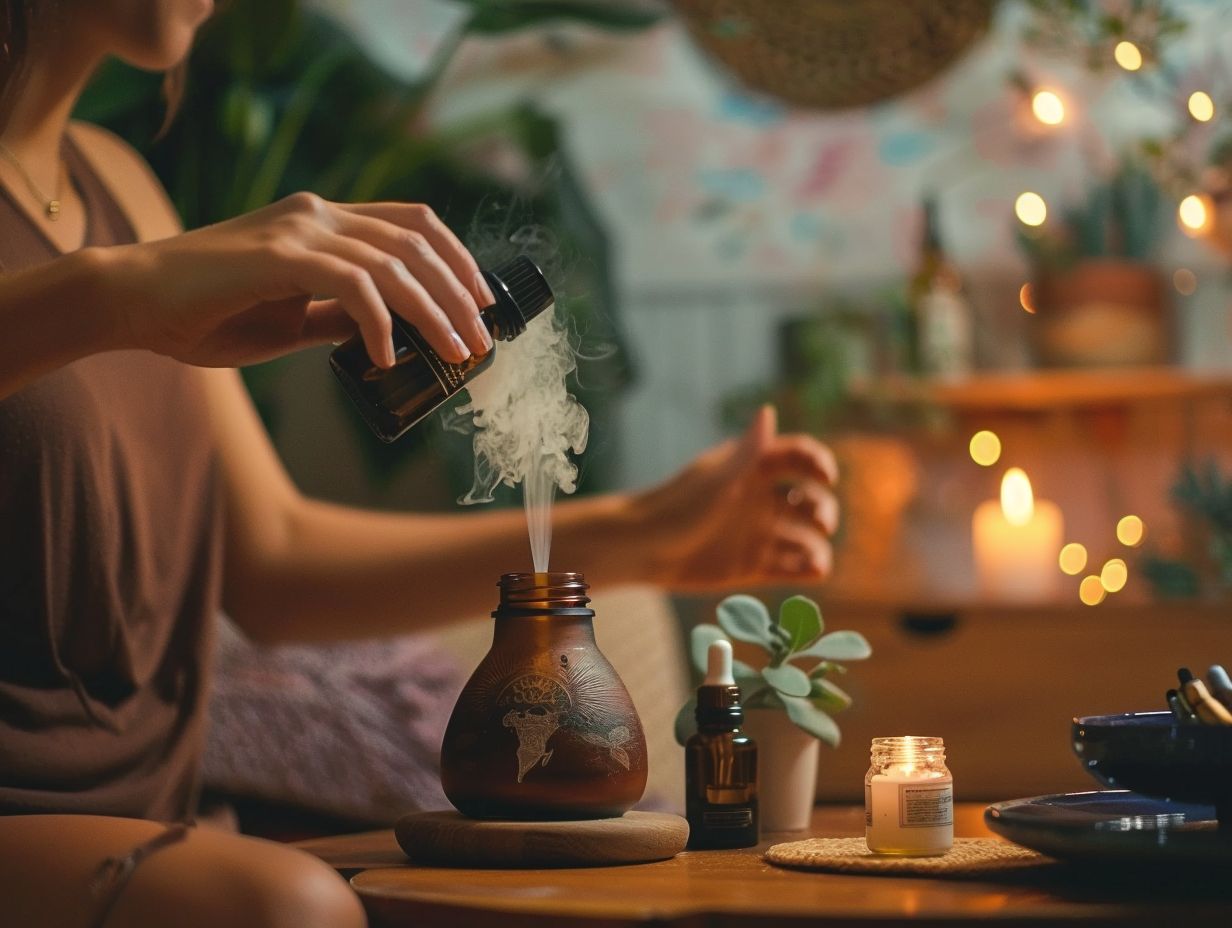
When essential oils are diffused, their aromatic molecules are inhaled and processed by the olfactory system, which is closely linked to the limbic system. This interaction with the limbic system can lead to the release of neurotransmitters like serotonin and dopamine, affecting one’s emotional state.
For example, the soothing properties of lavender oil can help reduce stress and anxiety, creating a sense of calm and tranquility. On the other hand, citrus oils such as lemon or orange can provide a refreshing and invigorating boost, making them ideal choices for enhancing energy levels and focus.
Can Diffusing Essential Oils Leave a Residue?
While diffusing essential oils generally evaporate without leaving a visible residue, some oils may leave traces behind due to their composition. Understanding the potential residue from diffusing oils is crucial for maintaining surfaces and air quality.
Residues left by certain essential oils could accumulate on various surfaces over time, affecting both the appearance and cleanliness of your living spaces. It’s essential to address any residues promptly to prevent build-up and potential damage. Regular cleaning and dusting can help manage these residues efficiently. Being mindful of the oils you use and their potential for leaving residue can help in selecting the most suitable ones for diffusing. Proper ventilation and using a diffuser in an open area can also minimize the risk of residual deposits in the air.
What Is Residue?
Residue refers to the leftover particles or substances that remain after a liquid evaporates or a substance is used.
In the context of diffusing essential oils, residue can lead to a buildup on diffuser surfaces, affecting their efficiency and requiring more frequent cleaning. The lingering residue in the air may also alter the aroma’s purity or intensity, impacting the overall diffusion experience. Proper maintenance and cleaning of the diffuser can help reduce the presence of residue and ensure optimal performance. It’s important to monitor and manage residue levels to maintain a consistent and pleasant diffusing environment.
Does Diffusing Essential Oils Leave a Residue on Surfaces?
Diffusing essential oils may leave a residue on surfaces if the oils are not properly diffused or if the diffuser cover is not cleaned regularly. Residue build-up on surfaces can occur due to the oil’s properties and diffusion method.
When essential oils are diffused, the tiny oil particles can settle on nearby surfaces over time, creating a thin film or residue. This residue is more likely to accumulate if the diffuser cover is not routinely wiped down or cleaned.
Proper diffusion techniques, such as using the right amount of oil for your diffuser’s capacity and ensuring proper ventilation in the room, can help minimize residue formation. Regularly cleaning the diffuser cover with a gentle cleaning solution or wipes specifically recommended for use with diffusers is crucial to prevent residue build-up and maintain a clean, efficient diffusing experience.
Does Diffusing Essential Oils Leave a Residue in the Air?
Diffusing essential oils can result in residue build-up in the air if the oils are diffused in high concentrations or for prolonged periods. A residue in the air may affect air quality and breathing, necessitating proper ventilation and maintenance.
Residue build-up from essential oils can create a layer of particles in the air that can be harmful when inhaled. These residues can linger and accumulate, potentially causing respiratory irritation or exacerbating existing conditions like allergies or asthma.
To mitigate this issue, it is crucial to ensure good air circulation by opening windows or using fans while diffusing oils. Regularly cleaning and maintaining diffusers also plays a vital role in preventing the spread of airborne residues from the oils.
How to Prevent Residue When Diffusing Essential Oils?
To prevent residue when diffusing essential oils, ensure to use high-quality oils, dilute them before diffusing, clean the diffuser regularly with a clean cloth, and diffuse in well-ventilated areas. Proper maintenance of the diffuser and surroundings can minimize residue build-up.
Using high-quality oils not only enhances the aroma but also reduces the chances of residue formation in the diffuser.
Diluting the oils properly before use helps in smooth diffusion and prevents excess build-up.
Ensure to wipe the diffuser with a clean cloth regularly to remove any oil residue that may accumulate.
Maintaining proper ventilation in the room where you diffuse oils can aid in preventing residue from settling on surfaces.
Regular maintenance routines contribute significantly to prolonging the lifespan of your diffuser and maintaining a clean environment.
Use High-Quality Essential Oils
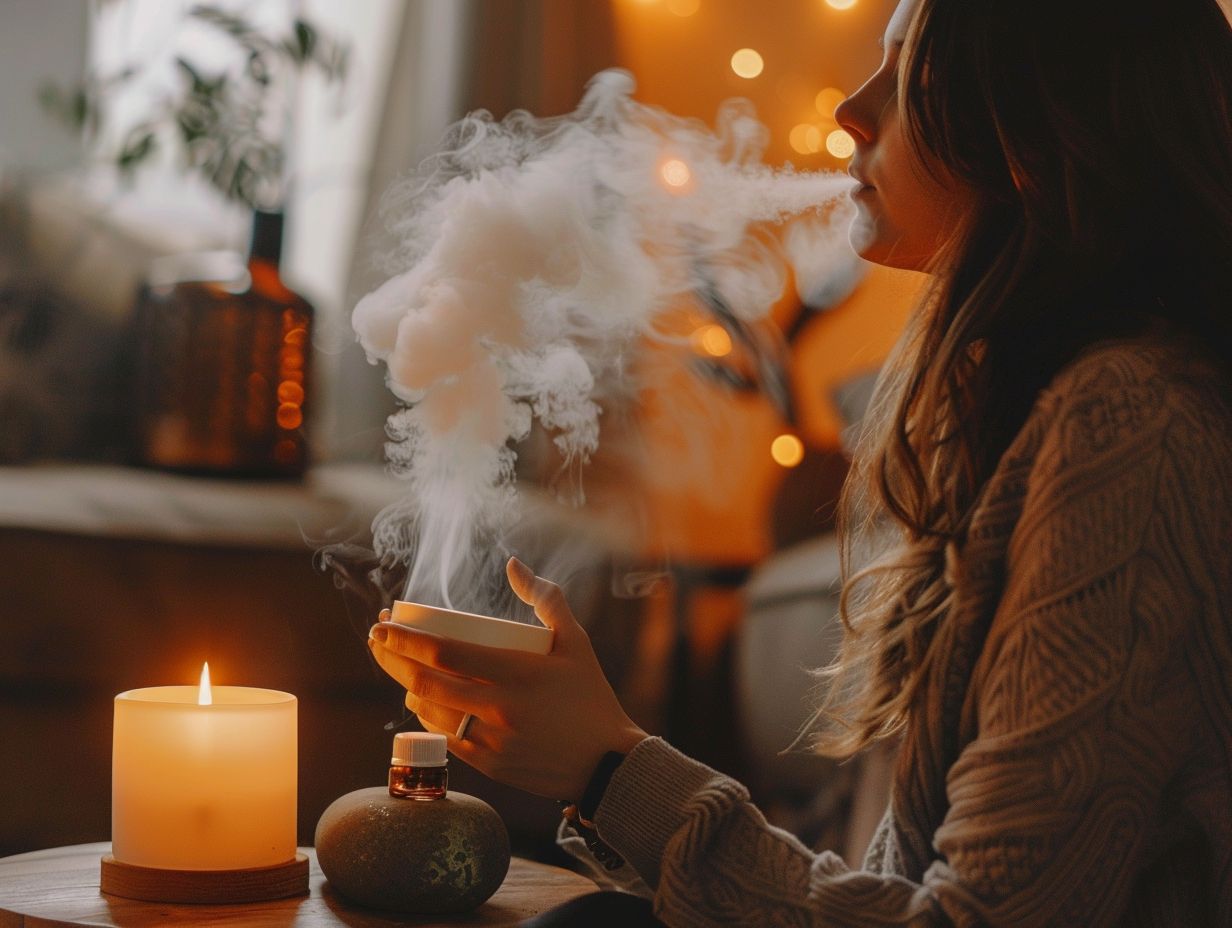
When you choose reputable manufacturers, you ensure that the essential oils have undergone rigorous testing and quality control measures, leading to a purer and more potent product. High-quality essential oils not only offer a more enjoyable aroma but also provide therapeutic benefits through their natural properties.
By using pure extracts in your diffusing routine, you are not only enhancing the ambiance of your space but also promoting a healthier environment. This is especially important for individuals sensitive to artificial fragrances or chemicals, as pure essential oils are free from synthetic additives.
Dilute Essential Oils Before Diffusing
Diluting essential oils with water before diffusing can help control the oil concentration and reduce the chances of residue build-up. Fill the diffuser reservoir with the appropriate water-oil ratio to ensure efficient diffusion and minimal residue deposition.
When you dilute essential oils, you not only make them safer but also extend their usage. Water acts as a carrier that aids in dispersing the oil molecules evenly, allowing for a consistent and pleasant aroma diffusion. Proper dilution helps in preventing overwhelming scents that may cause irritation, especially in sensitive individuals.
By filling the diffuser reservoir correctly with the recommended water-oil ratio, you optimize the diffusion process for a longer and more effective release of the essential oil benefits. This crucial step ensures that the oil is dispersed appropriately into the air without leaving behind any oily residue that could clog or damage the diffuser.
Clean Your Diffuser Regularly
Regularly cleaning your diffuser with rubbing alcohol and a cotton swab can help remove any residue build-up within the device. Ensure thorough cleaning of the diffuser cover, reservoir, and internal components to maintain optimal performance and prevent residue formation.
To clean the diffuser cover, gently wipe it with a cloth soaked in rubbing alcohol to eliminate any accumulated oils and dust. For the reservoir, mix water and a small amount of rubbing alcohol, then run the diffuser empty for a few minutes to disperse the mixture. Cleaning the internal components requires a more delicate approach; use a cotton swab dipped in rubbing alcohol to access hard-to-reach areas.
Diffuse in a Well-Ventilated Area
Diffusing essential oils in a well-ventilated area with proper air circulation can help disperse the oils effectively and reduce the risk of residue settling. Using distilled water in the diffuser can also prevent mineral deposits and residue formation during the diffusion process.
When selecting a diffuser, opt for one that has a timer or intermittent settings to control the release of essential oils. This not only helps in prolonging the diffusing process but also ensures that the aroma is spread consistently. Regular cleaning of the diffuser with a mixture of vinegar and distilled water helps maintain its efficiency and prevents clogging due to mineral buildup. By following these practices, you can maximize the benefits of essential oils while keeping your diffuser in optimal condition.
What Are the Alternatives to Diffusing Essential Oils?
Apart from diffusing essential oils, other alternatives include topical application, inhalation, and ingestion (with caution). These methods offer different ways to experience the benefits of essential oils based on individual preferences and needs.
Topical application involves applying essential oils directly to the skin. This method allows for quick absorption and targeted relief. It is ideal for addressing skincare concerns, muscle tension, and promoting relaxation through massages.
On the other hand, inhalation, whether through a diffuser or a steam inhalation method, provides a direct route for essential oils to enter the body and affect the respiratory system. This method is popular for its quick effects on mood and emotional well-being.
Ingestion, if done safely and under professional guidance, can offer internal benefits but requires caution due to the potency of essential oils.
Topical Application
Topical application involves directly applying essential oils to the skin for absorption. This method allows the oils to penetrate the skin and offer localized benefits, making it suitable for skincare, massage, and targeted treatments.
When applying essential oils topically, it is important to dilute them with a carrier oil to prevent skin irritation, especially for those with sensitive skin. Proper dilution ensures that the essential oils are safely and effectively absorbed.
In skincare, essential oils can address specific skin concerns such as acne, aging, or dryness. For massage therapies, blending essential oils with carrier oils can enhance relaxation or invigorate the senses, depending on the desired outcome. Targeted treatments like applying diluted tea tree oil on blemishes showcase the efficacy of topical application for localized issues.
Inhalation
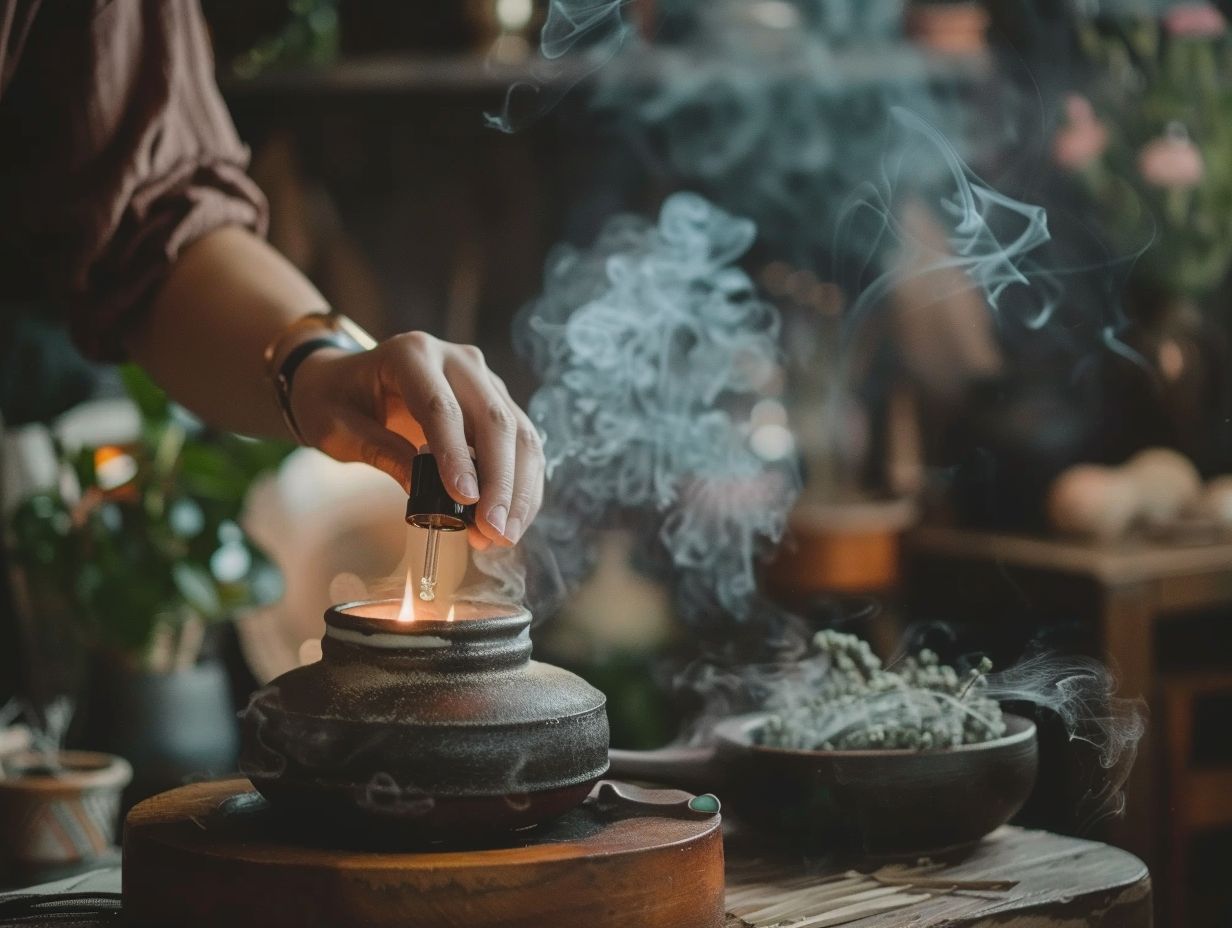
Inhalation involves breathing in the aroma of essential oils either through direct diffusion or by adding a few drops to a bowl of hot water. This method allows the oils to enter the respiratory system, offering respiratory and emotional benefits.
Direct diffusion often involves the use of a diffuser, a device that disperses the essential oil molecules into the air for inhalation. This method is effective in purifying the air, promoting relaxation, and improving cognitive function.
On the other hand, steam inhalation entails adding essential oils to hot water, covering the head with a towel, and deeply inhaling the steam. This technique can help clear congestion, soothe respiratory discomfort, and uplift the mood.
Ingestion (with Caution)
Ingestion of essential oils involves consuming them orally, but this method requires caution and expert guidance due to the concentrated nature of the oils. Not all oils are safe for ingestion, and proper dilution and dosage control are essential for safety.
Caution is crucial when considering the ingestion of essential oils, as their potency can lead to adverse effects if not used correctly. Consulting with a qualified aromatherapist or healthcare professional can provide invaluable insights into the suitable oils for ingestion and appropriate dosages.
Remember, the risks associated with ingesting oils include irritation, gastrointestinal distress, and even toxicity, especially if used in excessive amounts. Hence, careful consideration must be given to the purity and quality of the oil, as well as the individual’s health condition before opting for oral consumption.
Frequently Asked Questions
Does diffusing essential oils leave a residue on surfaces?
Yes, essential oils can leave a residue on surfaces if not properly diffused or cleaned up. It is important to use a high-quality diffuser and clean up any spills or excess oils immediately.
Can diffusing essential oils leave a residue in the air?
Yes, diffusing essential oils can leave a residue in the air if the diffuser is not properly maintained. It is important to regularly clean and replace the water and essential oil in the diffuser to prevent buildup.
How can I prevent residue from diffusing essential oils?
To prevent residue from diffusing essential oils, make sure to use a high-quality diffuser and follow the manufacturer’s instructions for proper use. It is also important to regularly clean and maintain the diffuser.
Can residue from diffusing essential oils be harmful?
Residue from diffusing essential oils can potentially be harmful if ingested or if inhaled in large quantities. It is important to use essential oils in moderation and follow safety precautions when diffusing.
Is it normal for diffused essential oils to leave a residue on my skin?
Some essential oils can leave a residue on the skin, especially if they are not properly diluted. Make sure to always dilute essential oils before applying them to the skin to avoid any potential residue or irritation.
How can I safely clean residue from diffused essential oils?
To safely clean residue from diffused essential oils, gently wipe down surfaces or use a mild soap and water solution. Make sure to also regularly clean and maintain your diffuser to prevent buildup and potential residue.

